
Copernical Team
Gearing up for EarthCARE
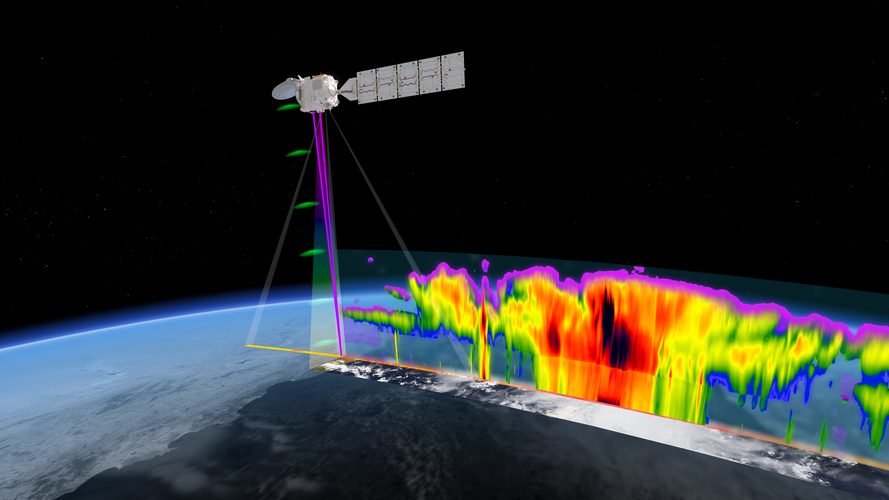
ESA and the Japanese Aerospace Exploration Agency are gearing up for a momentous milestone in Earth observation as launch of the EarthCARE satellite approaches.
Following years of rigorous development and extensive testing, the satellite is now undergoing its final round of tests in Europe before being shipped to the launch site early next year – bringing us one step closer to gaining unprecedented insights into the role that clouds and aerosols play in the climate system.
New mapping tools will find subsurface water ice on Mars
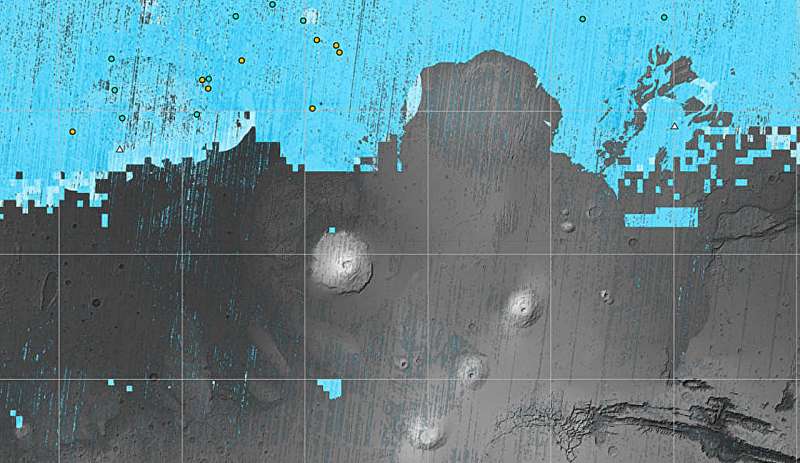
Refined mapping tools that identify subsurface water ice on Mars will help determine the best targets for robotic and human missions to the planet.
How to prepare for a trip to space
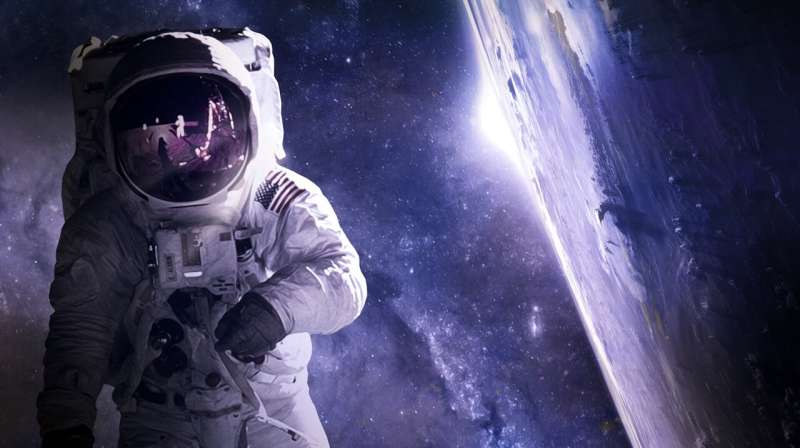
Aleksandra Stankovic is an aerospace psychologist and spaceflight biomedical researcher who studies how to optimize human performance and behavioral health in extreme operational environments. In this article, she describes how a person gets ready to travel to space.
The spaceflight environment presents many challenges—technical, physical, and psychological. With more people having access to space travel today than ever before, successful and safe spaceflights require varying levels of preparation before launch day.
For government astronauts, candidates undergo a rigorous two-year initial training period before qualifying for flight assignment. This training includes learning about Space Station and flight vehicle systems, studying orbital mechanics, becoming proficient in emergency procedures (like how to handle scenarios such as fire, cabin depressurization, or medical issues), conducting flight training in T-38 jets (to build quick decision-making skills in high-performance aircraft), and developing Russian language skills (since international space missions involve collaboration among astronauts from various countries).
To prepare for the microgravity environment of space, astronauts also participate in simulations of weightlessness, including parabolic flights and training in the Neutral Buoyancy Lab, a large swimming pool where astronauts practice conducting spacewalks and learn to perform tasks in their pressurized spacesuits.
Atmospheric Waves Experiment launching to space station to study atmospheric waves via airglow
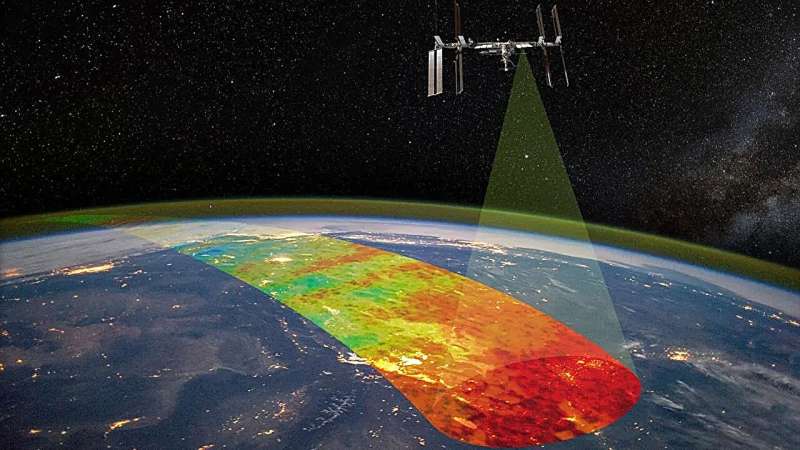
NASA's Atmospheric Waves Experiment, or AWE, mission is scheduled to launch to the International Space Station in November 2023, where it will make use of a natural, ethereal glow in Earth's sky to study waves in our planet's atmosphere.
Built by Utah State University's Space Dynamics Laboratory in North Logan, Utah, AWE will be mounted on the exterior of the space station.
Space is getting crowded with satellites and space junk. How do we avoid collisions?
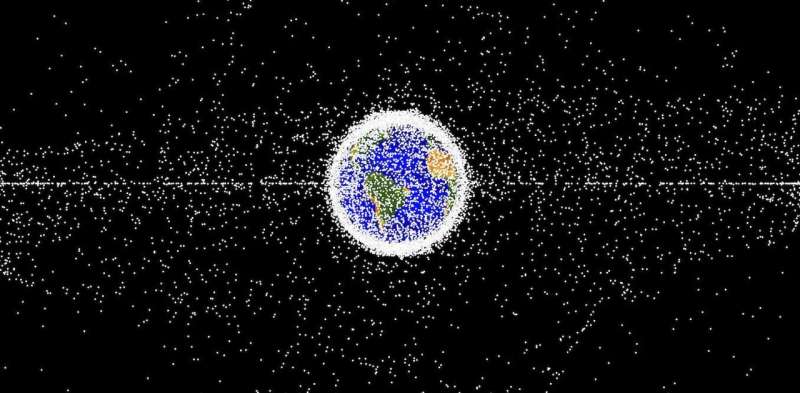
Reports this week suggest a near-collision between an Australian satellite and a suspected Chinese military satellite.
Meanwhile, earlier this month, the US government issued the first ever space junk fine. The Federal Communications Commission handed a US$150,000 penalty to the DISH Network, a publicly traded company providing satellite TV services.
It came as a surprise to many in the space industry, as the fine didn't relate to any recent debris—it was issued for a communications satellite that has been in space for more than 21 years. It was EchoStar-7, which failed to meet the orbit requirements outlined in a previously agreed debris mitigation plan.
The EchoStar-7 fine might be a US first, but it probably won't be the last. We are entering an unprecedented era of space use and can expect the number of active satellites in space to increase by 700% by the end of the decade.
As our local space gets more crowded, keeping an eye on tens of thousands of satellites and bits of space junk will only become more important.
QuickSounder Spacecraft contract awarded by NASA
 NASA, on behalf of NOAA, has awarded a delivery order under the Rapid Spacecraft Acquisition IV (Rapid-IV) contract to Southwest Research Institute of San Antonio for the QuickSounder spacecraft.
The firm-fixed-price delivery order covers all phases of QuickSounder's operations to include spacecraft development, integration of NOAA's Advanced Technology Microwave Sounder Engineering Develo
NASA, on behalf of NOAA, has awarded a delivery order under the Rapid Spacecraft Acquisition IV (Rapid-IV) contract to Southwest Research Institute of San Antonio for the QuickSounder spacecraft.
The firm-fixed-price delivery order covers all phases of QuickSounder's operations to include spacecraft development, integration of NOAA's Advanced Technology Microwave Sounder Engineering Develo High-resolution atmospheric modeling gets a boost with next-gen GEOS-Chem software
 In a significant leap forward for atmospheric science, researchers from Washington University's McKelvey School of Engineering have rolled out an advanced version of GEOS-Chem, known as High Performance GEOS-Chem. This next-generation software paves the way for researchers, policymakers, and citizen scientists to conduct highly detailed studies of air quality and greenhouse gases, using meteorol
In a significant leap forward for atmospheric science, researchers from Washington University's McKelvey School of Engineering have rolled out an advanced version of GEOS-Chem, known as High Performance GEOS-Chem. This next-generation software paves the way for researchers, policymakers, and citizen scientists to conduct highly detailed studies of air quality and greenhouse gases, using meteorol China discloses tasks of Shenzhou-17 crewed space mission
 The Shenzhou-17 astronauts will perform various in-orbit space science and application payload tests and experiments, a senior official from the China Manned Space Agency (CMSA) announced at a press conference on Wednesday.
They will carry out extravehicular activities (EVAs), install extravehicular payloads and conduct space station maintenance and other tasks, said Lin Xiqiang, deputy di
The Shenzhou-17 astronauts will perform various in-orbit space science and application payload tests and experiments, a senior official from the China Manned Space Agency (CMSA) announced at a press conference on Wednesday.
They will carry out extravehicular activities (EVAs), install extravehicular payloads and conduct space station maintenance and other tasks, said Lin Xiqiang, deputy di Tightbeam tech set to revolutionize Global Marine Internet through Aalyria-HICO Partnership
 Aalyria Technologies and HICO Investment Group are joining forces to revolutionize maritime communications, having recently signed a Memorandum of Understanding (MOU). The agreement sets forth the scope and aims of a partnership that seeks to introduce Aalyria's Tightbeam high-speed, free-space optics communications systems across the maritime sector in various global regions, including the Midd
Aalyria Technologies and HICO Investment Group are joining forces to revolutionize maritime communications, having recently signed a Memorandum of Understanding (MOU). The agreement sets forth the scope and aims of a partnership that seeks to introduce Aalyria's Tightbeam high-speed, free-space optics communications systems across the maritime sector in various global regions, including the Midd Terran Orbital awarded $4.7 Million Contract by European Space Agency
 Terran Orbital Corporation (NYSE: LLAP), a global leader in satellite-based solutions primarily serving the aerospace and defense industries, has announced its wholly-owned international subsidiary, Tyvak International s.r.l., has been chosen as a prime contractor under a $4.7 million or euro 4.5 million contract by the European Space Agency (ESA) for a proximity operations and in-orbit servici
Terran Orbital Corporation (NYSE: LLAP), a global leader in satellite-based solutions primarily serving the aerospace and defense industries, has announced its wholly-owned international subsidiary, Tyvak International s.r.l., has been chosen as a prime contractor under a $4.7 million or euro 4.5 million contract by the European Space Agency (ESA) for a proximity operations and in-orbit servici 
